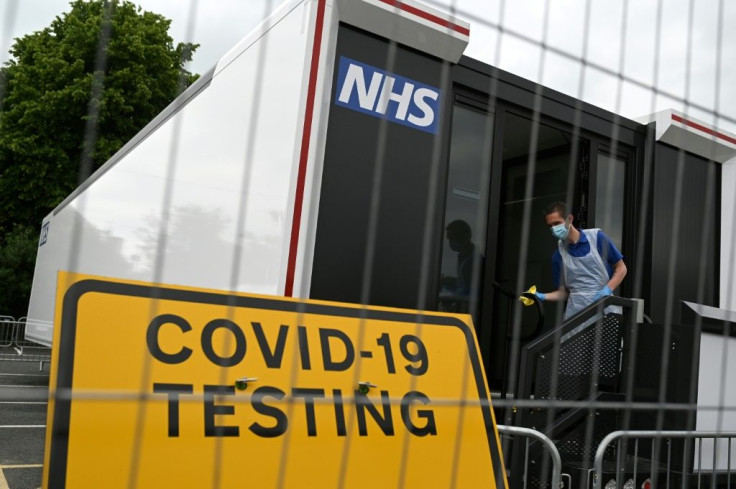UK Man Tested Positive For COVID-19 43 Times In 10-Month Span
KEY POINTS
- A 72-year-old man in the U.K. is believed to have had the longest case of COVID-19 infection, lasting about 10 months
- The man tested positive for the virus 43 times and was hospitalized seven times
- He was treated with a new mixture of antiviral drugs from Regeneron on compassionate grounds
A 72-year-old man in Bristol, England, tested positive for coronavirus 43 times in what is believed to be the longest recorded case of continuous infection — about 10 months.
Dave Smith had already made plans for his funeral after testing positive for COVID-19 for 10 consecutive months. A retired driving instructor, Smith was hospitalized seven times during the span of his coronavirus infection.
"I'd resigned myself, I'd called the family in, made my peace with everybody, said goodbye," he told the BBC.
The British man had a history of lung disease and had only recently recovered from leukemia when he caught the virus in March 2020.
Smith's wife, Linda, also shared her struggles with having to see her husband endure COVID-19 for so long. "There were a lot of times when we didn't think he was going to pull through. It's been a hell of a year," she said.
The 72-year-old is said to have "had an active virus in his body" all throughout his battle with COVID-19. According to Ed Moran, a consultant in infectious diseases at the University of Bristol and North Bristol National Health Service Trust, they were able to discover that Smith had an active virus by sending his sample to university partners.
"We were able to prove that by sending a sample of his virus to university partners who managed to grow it, proving that it was not just left-over products that were triggering a PCR test but actually active, viable virus," Moran explained.
Fortunately, Smith recovered from the virus after taking a new mixture of antiviral drugs developed by Regeneron, a U.S. biotech firm. The treatment regime given to Smith was allowed to be administered on compassionate grounds, but it is not yet clinically approved for use in the U.K.
Clinical trials done on Regeneron's antiviral drugs showed that the treatment was able to significantly reduce the number of COVID-19 deaths among patients who were unable to develop a strong immune response against the virus.
"It's like you've been given your life back," Smith told the BBC.
He and his wife Linda immediately opened a bottle of champagne to celebrate after Smith finally tested negative for COVID-19 305 days after his first infection.
Andrew Davidson, a virologist at the University of Bristol, is now studying Smith's case as "the longest infection recorded in the literature."
"Where does the virus hide away in the body? How can it stay just persistently infecting people? We don't know that," Davidson said.
As for Smith, he said he is deeply delighted with his recovery and is now spending his time teaching his granddaughter how to drive.
"I've been down to the bottom and everything's brilliant now," he said.

© Copyright IBTimes 2025. All rights reserved.





















